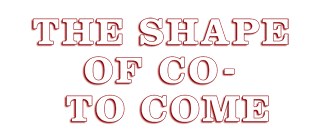SYMPOSIUM PROGRAM
Open to the public, no registration required.
As a staging of the ‘study circle’ format, where attending is a participatory act, each presentation is 45 min., followed by 30 min. for Q/A and discussion, with a longer space for conversation at the end of each day. Possibility exists for those who would like to meet and discuss in smaller groups to move into another space, as a pop-up study circle.
Thursday September 8th
16-18: Exhibition opening in Sveagalleriet, -1 floor, opening remarks Fia Backström
18.00: Performance: Sondra Perry: “Tubular”
18.30: Screening “My name is Albert Ayler” with the director Kasper Collin
present
20.30: Continuing conversation in Restaurant Cirkeln on the ground floor
Friday September 9th
12.00 – 12.30 Introductory Narration: Fia Backström: “Tvärsektoriell Samverkan – The Shape of Co- to Come”
12.30 – 13.45 Lawen Mohtadi:
”Katarina Taikon and the Forgotten Civil Rights Movement in Sweden”
13.45 – 14.30 Lunch break
14.30 – 15.45 Stefano Harney and Fred Moten: “Convivial Study”
15.45 – 16.00 Short break
16.00 – 17.15 Liselott Olsson: “Taking place – making sense: (Re)searching the public territory of education”
17.15 – 18.00 Continued conversation and/or break
18.00 – 19.30 Poetry reading with Ida Börjel, Fred Moten, and Khashayar Naderehvandi
19.30 –> Continuing conversation and celebration in Restaurang Cirkeln with DJ Karl Jonas Winqvist
Saturday September 10th
12.00 – 12.30 Performance: Petra Bauer: “Women in Struggles”
12.30 – 13.30 Arthur Jafa will screen his new film: “Love is the Message and the Message Is Death”, 2016, and talk on:
13.30 – 14.00 Fred Moten & Arthur Jafa in discussion
14.00 – 14.30 Short lunch break
14.30 – 15.45 Yvonne Bezerra de Mello: “Teaching with the Mind”
15.45 – 16.15 Performance: Kamau Patton: “Fractured By the Pure Empty Form of Time”
16.15 – 17.00: Final conversation
All presentations and performances take place in Katasalen, 2nd fl. except for the exhibition opening, which takes place in Sveagalleriet, -1 floor.
Abstracts
Liselott Olsson: “Taking place – making sense: (Re)searching the public territory of education”
Despite the fact that all educational activity and practice demands a place for making sense in experiences and events, the importance of the physical-material place in education is underestimated and neglected. Educational practices located in temporary barracks or in spaces never meant to harbour any educational activity – paired with educational policies and market forces interference – reveal a situation where it is neither place, nor the public that constitute the critical foundation of education. Education, from preschool to university, has shifted from a place where new generations were given possibilities and tools for contributing to and renewing the “common goods” of society – to an abstracted place for individual achievement on a globally dispersed labour-market. This individualized idea of education, directed towards an imagined future, breaks the relation between individuals as citizens and members of society and the historical, social and cultural conditions expressed in the physical-material place. In this lecture we investigate how to make possible for children as well as teachers to go beyond oneself, engage in the study of the world through the formation of common goods, and thereby participate in the renewal of society through physically and materially taking place and making sense in and of the public territory of education. Examples from the research project ‘The Magic of Language’, taking place in a multitudinal early childhood setting, is woven together with pedagogical, philosophical and aesthetical perspectives and the potential of joining art and pedagogy in educational contexts is explored.
Petra Bauer: “Women in Struggles”
A history about socialism, collectivity, resistance and representation.
At the end of the 19th century the Swedish Socialist Women’s Movement emerged and started to address issues such as legal rights, childcare, sexuality, universal suffrage, ownership and women’s representation in society. As women in Sweden were not acknowledged as legal political subjects till 1921, this was a time when all political activities that women were involved in could be seen as potentially subversive. The emerging movement used among other things posters to call out to women, magazines to discuss politics, and photographs of and by socialist women’s to build alliances and fight for women’s political positions. What can we learn today from the socialist women’s struggles in the early 20th century.
Yvonne Bezerra de Mello: “Teaching with the Mind”
For the past 35 years I have been researching about cognitive problems in children and youth living in countries at war and urban conflict zones.
My focus has always been to find out and understand what hinders learning abilities in these communities.
My initial research in the early 70’s comprised the children of foreign immigrants in France – where I studied philology and linguistics – and also in 5 different African countries in constant war.
I found out that even back then, traditional school system didn’t allow those kids with cognitive blockages to learn and develop well in school.
Since most cognitive blocks have an emotional background, I started to develop a methodology to improve what I call “classroom management”, geared towards making those kids brains work in a way to properly retain information.
As neuroscience discoveries improved I started to elaborate a whole teaching pedagogy that could recover those cognitive blocked kids through a different approach to the traditional school curriculum.
This is how the UERК-MELLO Pedagogy was born, later becoming official public policy for all public school in the city of Rio de Janeiro in 2005 and then official part of the pedagogical program of the “School of Tomorrow” project in 2008, having also spread to many other cities in Brazil and abroad.
Kamau Patton – “Fractured By the Pure Empty Form of Time”
A sound performance for voice and electronics which explores themes of language, communication, words, sounds, pitch.
“Each human being knows but one infinity. In this one infinite space and time each human reference resides- unlike any other human being’s reference. Nothing matches everything and everything matches nothing.” – Herbert Brun
